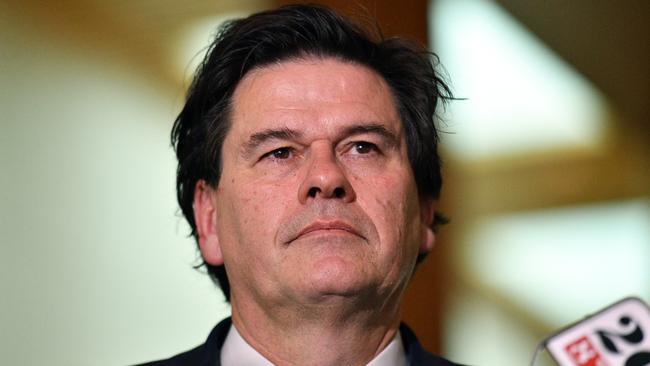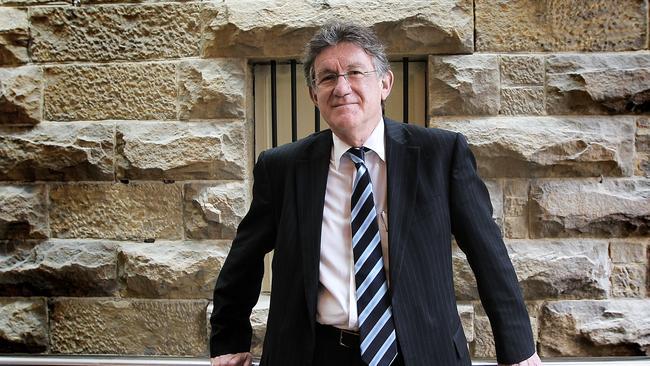Bushfires: GDP poised to take hit
Business leaders are warning that Australia’s brutal bushfire season could stall economic growth in the December quarter.

Business leaders are warning that Australia’s brutal bushfire season could stall economic growth in the December quarter, with major impacts on tourism, retail spending and productivity.
Australian Industry Group chief executive Innes Willox called for governments to develop “holistic, co-ordinated and appropriately resourced measures” to deal with the threat of more severe bushfire seasons.
He said the fires had led to people cancelling their holidays to Australia while shops and restaurants were being hit as smoke choked Sydney.
“These fires have the potential to knock GDP lower, but we cannot quantify exactly how much of a drop is likely,” Mr Willox writes in The Australian on Monday.
“With GDP growth already very weak in the third quarter of 2019 (just 0.4 per cent for the quarter and 1.7 per cent for the year), it would not take much to knock GDP into a negative in the fourth quarter, for example, due to port and airport disruptions to import and export volumes.”
The warning came as the peak insurance body added the fires in South Australia to the industry’s catastrophe rating already given to blazes in NSW and Queensland.
Insurance Council head of communications Campbell Fuller said on Sunday property claims for bushfires since October were $238m, raising fears from business that the costs from increased payouts would be passed on to consumers.
“This is likely to rise sharply as more householders and business owners lodge claims,” Mr Fuller said. “Fires continue to rage and further property losses are certain. The quantum is just extraordinary.
“Property owners in many areas haven’t been back to their properties in weeks. Insurers are still trying to get an understanding of the extent of the initial losses.”
Fires in NSW and Queensland in December and November have resulted in 2306 claims, with losses estimated at about $182.6m.
That is on top of claims in September worth $37m and October claims of $19m.
“Figures are expected to increase as Building Impact Assessment teams deploy into areas when it is safe to do so,” the spokesman said.

Australian Retailers Association executive director Russell Zimmerman said the smoke in Sydney had impacted on outdoor shopping and dining. “It has been tough. Obviously dining would be affected by it but I think the other area that would be affected will be the strip shop rather than the shopping centre,” he said.
“Our thoughts and our concerns is more about people who are impacted by the fires. It just doesn’t seem to be letting up.”
NAB chief economist Alan Oster said the fires would further dampen consumer spending, which has been flat despite the government’s increase to the income tax rebate.
“They are obviously not going to help,” Mr Oster said.
He said growth in the public sector would likely prevent an economic contraction in the final quarter of the year. “If you talk about the private sector demand, it has been negative for the last two to three quarters and that has been the big problem. None of this is helping,” Mr Oster said.
Mr Willox writes that fires in NSW and Queensland are responsible for “disrupted and postponed business activity and outright drops in activity”. “All industries are facing disruptions, with firefighter volunteers taking time off work. Working parents are also taking time off due to widespread school closures,” Mr Willox writes.
“Even in the big cities far away from the fires, the ubiquitous smoke is causing work disruptions through building evacuations and closures due to automatic fire alarms and/or poor air quality.”
He also said the fires could contaminate water supplies in coalmines and power stations, while causing transport disruptions. “There are anecdotal reports of holiday cancellations all along the coast for December and January,’’ Mr Willox writes.
“These holidays are unlikely to be simply postponed. People do not take their Christmas/summer holiday later instead. They will go elsewhere or stay home.
“In Sydney, in particular, the attraction of visiting the city for the spectacular harbour views is dulled by news reports of smoke so thick the bridge and Opera House can barely be seen.”
The forecasts in last week’s mid-year economic and fiscal outlook assumed a return to “average seasonal conditions in 2020-21”.
“However, regional fires in NSW have resulted in some rerouting of livestock feed as well as possible delays to harvesting, which may lower farm production,” the report said.
“It is causing disruptions to business, including tourism, where the full cost is not likely to be known for some time.”
Josh Frydenberg said it was “too early to tell” the impact of the fires on the economy.








To join the conversation, please log in. Don't have an account? Register
Join the conversation, you are commenting as Logout